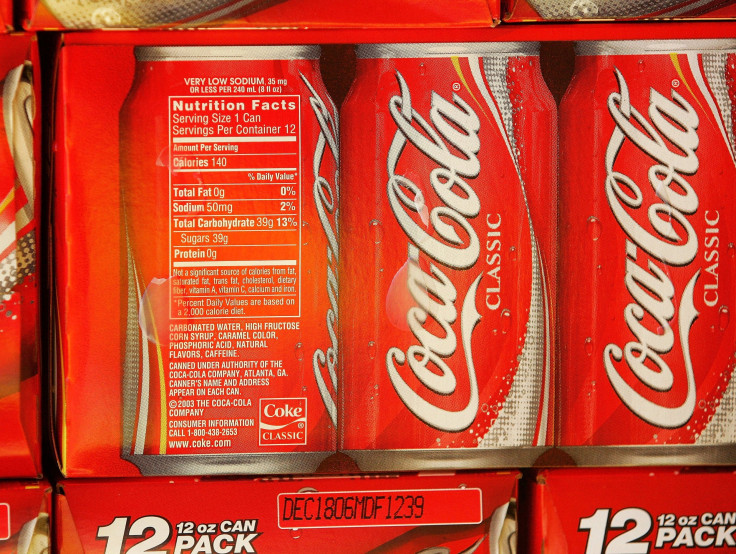Do Soda Taxes Work? Raising The Price Of Sugary Drinks Could Save Countries Millions And Prevent Obesity

As governments and food companies around the world debate the merits of taxing sugary drinks like sodas, a new study predicts that such levies could not only prevent people from becoming obese but also save health systems millions of dollars over the next decade.
In the study, conducted by Cancer Research U.K. and the U.K. Health Forum, researchers created a model to measure the impact of a 20 percent tax on sugary drinks in the United Kingdom. That model predicted that the number of cans of soda drunk would decrease by 16 percent. Once researchers accounted for other foods and drinks people would consume instead, they predicted that every day, people would consume 15 fewer calories, an amount that would add up to preventing 3.7 million people from becoming obese and saving the National Health Services £10 million by 2025.
The idea of a tax on sugary drinks, from sodas to sports drinks to sweetened iced teas, has been proposed and in some cases implemented in countries and cities around the world. This is in response to the crisis of significant proportions of their populations having lifestyle diseases, like obesity and Type 2 diabetes, that have been linked to excessive sugar consumption.
US soda vs bottled water consumption cc @EventDrivenMgr pic.twitter.com/5ykQsOAmqd
— Bluegrass Capital (@BluegrassCap) August 29, 2015
In January 2014, Mexico implemented an excise tax of one peso per liter on sugary drinks — the world's first tax on soda and sugary drinks. In its first year alone, the tax helped cut soda consumption by as much as 12 percent, one study found. About 70 percent of Mexicans are overweight or obese, and about 12 percent have diabetes, meaning it has some of the highest rates in the world for both diseases.
A tax on sugary beverages in the U.S. city of Berkeley, California, went into effect in March 2015, imposing an extra penny per ounce, a cost that was supposed to trickle down to the consumer. But an analysis published five months later by Cornell University and the University of Iowa suggested that companies were instead absorbing the cost of the so-called sin tax, and so the cost of a soda in Berkeley rose on average by less than half of the tax amount.
In the U.K., public health advocates have called for a tax on sugar-sweetened beverages. Parliament debated the matter in November, but the Department of Health said it would not introduce such a tax, as "the government has committed to a tax lock to avoid raising the cost of living and to promote U.K. productivity and economic growth."
About 29 percent of the population in the U.K. is obese, a proportion that is slated to increase to 34 percent by 2025. Children 4-10 get nearly 15 percent of their daily caloric intake from sugar, while for teenagers it's even higher, at 15.6 percent. Official nutrition guidelines recommend that less than 5 percent of daily calories come from added sugar.
© Copyright IBTimes 2024. All rights reserved.






















